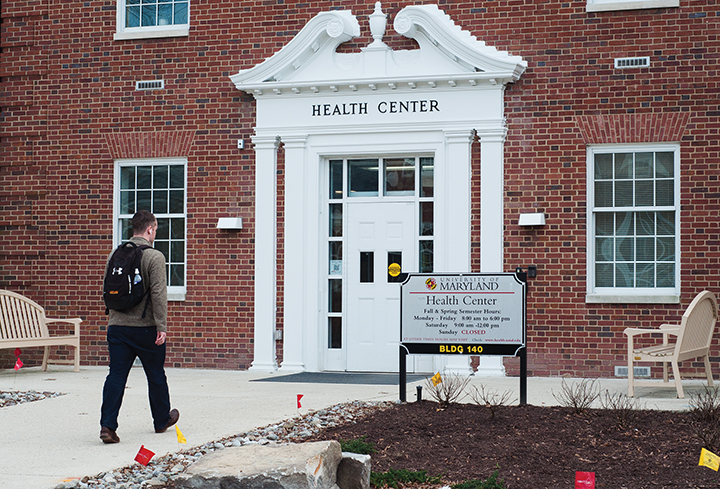Views expressed in opinion columns are the author’s own.
We all know what it feels like when one of our arms or legs goes numb. We sleep on our arm or sit on our leg, and suddenly can no longer feel it. It’s as if our limb is suddenly gone. Many people assume depression is feeling sad all the time when, in reality, people with depression often describe the condition as feeling numb. Feeling nothing. Like you fell asleep in a weird position, but your entire body is gone instead of just your arm. Like all of you is empty or missing. If you have ever felt that way, you know it is very real. It is not about toughening up or thinking positively. So why does our culture still treat mental illness so differently from physical illness?
About 43.8 million American adults, 18.5 percent of the population, report suffering from mental illness in a given year. One out of every 12 college students makes a suicide plan, and suicide is the second-leading cause of death for Americans aged 18 through 35. Think about what these numbers mean for a second. How many college students do you know? Do the math: Statistically, how many of your friends have made a suicide plan? And yet, two-thirds of college students suffering from mental illness do not seek care. If you break your leg, you go to the doctor. If you cannot stop coughing, you go the doctor. But if you have depression or anxiety, we view a doctor as optional. The stigma around mental illness is alive and well.
The study of mental illness from a biological and neurological perspective is still fairly new. However, most scientists believe that mental illnesses arise from the brain’s inability to effectively communicate with itself. Our brains use chemicals to transmit messages between the individual cells that make it up. A disruption in these chemicals is theorized to cause many mental disorders.
For example, scientists have found people with depression have low levels of the brain chemical serotonin. This discovery facilitated the creation of antidepressant medications that increase serotonin levels in the brain. Thus, scientists have already demonstrated mental illnesses have physical causes. If you had a brain tumor causing emotional changes, you would seek treatment; however, if you have a chemical imbalance in your brain causing emotional changes, large segments of society are still unconvinced you should get help.
Even as attitudes change and people begin to recognize the importance of treating mental health conditions, mental health is still seen as separate and secondary to physical health. The Affordable Care Act made mental health an essential benefit. Thus, health insurance plans are required to cover mental health care. This was a huge step toward de-stigmatizing mental illnesses by recognizing that treatment for those conditions is just as important as treatment for physical ailments. However, this legislation remains highly contested. The Republican replacement plans no longer mandate essential benefits coverage, which would allow states to opt out of providing mental health coverage. Again, this demonstrates that large swaths of society do not view mental health care in the same light as other health conditions.
Every year, more than 44,000 Americans commit suicide. On average, as you sit through your 50-minute lecture, four Americans have committed suicide. We cannot continue telling people to get over it. “Have you tried just being more positive?” is not a solution, and it is not realistic. We have to treat people who suffer from mental illness like every other kind of patient.
This problem hits very close to home. The University of Maryland does not treat mental health as seriously as it should. If you are a student who is brave enough to ask for help and seek care but are not actively suicidal, you will be referred to the counseling center. On a campus of more than 37,000 students, you must go to a center with 10 staff psychologists and three part-time psychologists.
If one out of every 12 college students makes a suicide plan, that amounts to over 3,000 students on our campus. These students, and so many more, are sent to a service with only 13 psychologists that limits your sessions to eight in a year. If you had cancer, your doctor would not stop treating you after eight rounds of chemotherapy.
Our university, like many others around the country, needs to increase funding for mental health services. So many of our friends and classmates are suffering. So many of them suffer in silence. When they are brave enough to reach out, we need to provide them with the resources to get better instead of hoping their illness will go away through willpower alone.
Mitchell Rock is a senior government and politics and physiology and neurobiology major. He can be reached at mrock13@umd.edu.



